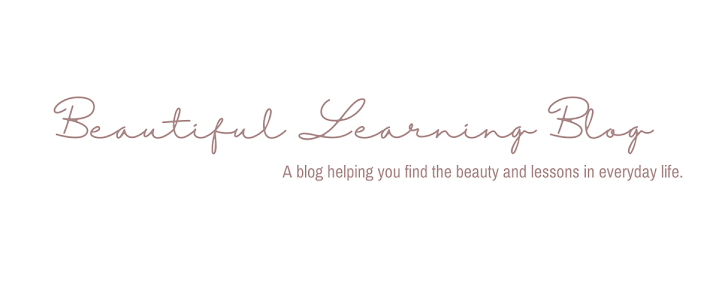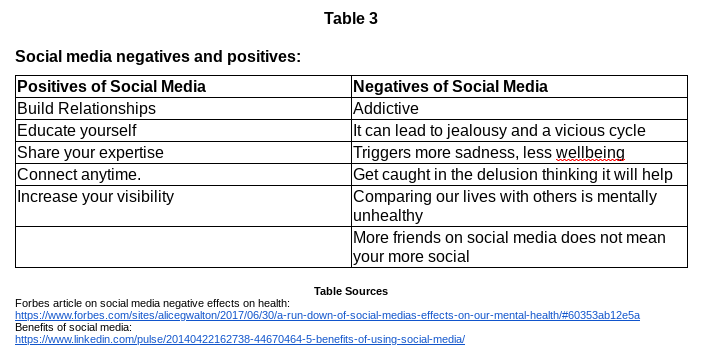1. Find contentment and see the beauty in the way things are now.
It’s ok to have goals and ambitions, but not at the detriment of finding contentment in the here and now.
Yes, this is very hard sometimes. There is, especially now it seems, a constant urge to do more and be more. We should be able to separate our goals and ambitions from the current life we have and know each one’s place in our lives in a beautiful balance. It will make life so refreshing.
While we may want to fix or improve our lives, our lives are what they are NOW and that’s ok. We all have a unique beauty in our current lives however they may be right now.
Learn to accept, be content, and find beauty in the here and now. However, have goals and ambitions while embracing change.
Balance is key.
2. Read
Subscribe to blogs, newsletters, publications, magazines, or other reading sources that inspire, teach you wisdom, and/or bring beauty into your life.
The key is that they must be of value to you in some way.
Omit and stay away from those that aren’t of value to you. If you don’t, they will become burdens in your life.
3. Reflect on your experiences — at least weekly if not daily.
Start out with weekly to get you started.
What has happened this week? How is this helping me to become a better person, help others to become better, and what are the key takeaways for my life?
These observations and reflections are truly beautiful. They will add to your life.4. Learn and remember what your simple pleasures are in life.
For example and help with this, visit my Medium article “
Life’s Simple Pleasures”.
Quoted from the post, simple pleasures “…are simple things we like and are passionate about in life. This can even be as detailed as the smells, sights, and foods among many other simple and sometimes overlooked details in our life that evoke happiness and joy.”
5. Learn how to eat, drink, and live healthily.
While hard, this will add tremendously to your life.
Why do YOU want to do this? — that is what you need to find out for yourself as it’s different for everyone.
Understanding yourself enough to know why you want to live healthily is the component that makes this most beautiful.
6. Understand your childhood and how it has impacted your adult life.
Many things we don’t understand are linked back to our childhood and the way we learned.
Some can do this on their own and some may need the help of a professional. It’s nothing to be ashamed of or fear.
Learning from our childhood so that we can become the best version of ourselves is one of the most beautiful things we can do in life.
7. Learn about your family and friends.
Don’t build relationships that only skim the surface of what they could be. Learn about and understand those you cherish in your life.
Learning about them will add to your life and also theirs.
Ask them questions, spend time together in-person if you are able, and make sure they know how much they mean to you.
8. Learn to manage your finances well.
Don’t overspend.
Learn to budget your money and live within your means.
Your mind will thank you and so will your wallet.
9. Learn from people who inspire you.
Who are you inspired by? Figure this out as it holds a lot of value in understanding yourself more.
Once you know who you are inspired by, learn from them the most you can.
10. Learn what to cut from your life.
How do you do this? You figure out what kind of life you want and who you are so that you know what to surround yourself with and do.
The key is to know yourself… Knowing yourself doesn’t end once you are sure you do either. We are constantly evolving and changing.
Be in touch with who you are NOW and who you want to become.
11. Travel.
Traveling is nice because it really immerses you in a different culture if you allow yourself to fully experience what the traveling is offering you, but you don’t have to get that full emersion to get the same benefits elsewhere.
If you can’t travel because you either don’t enjoy it for whatever reason or maybe you don’t have the funds to do so right now, then talk to people who have and learn from them.
Talk to and get to know people who are different from you and/or have different cultural backgrounds.
Many people don’t allow themselves to fully experience travel and learn the different views and ways of life that are such great mind-opening experiences. Then, traveling doesn’t offer quite the beautiful learning that’s so great.
Oftentimes, what I notice is that people want to use travel as a way to get attention and feel better than others. That’s not the reason to travel. Your 1,000 photos from Europe don’t make you a grand human being.
Use travel as a means to learn. The world is beautiful.
12. Figure out the career(s) you love.
Yes, a job can just be that — a job. That’s ok and dandy if you want it to be that way. If this is the case, then I would go the mile to ensure that what you’re doing outside of your job at least brings you joy and happiness in some way.
Really the point here is that the term career can mean many things. A stay-at-home mom, for instance, has a tough but rewarding career.
Find what you love, what you feel is rewarding, and what brings you happiness and joy. Then, try to do more of it.
What career(s) we love, find rewarding, and bring us happiness and joy can change throughout our lives, however. Notice what new things you’re loving and what old things that once brought you happiness and joy but no longer are doing so.
Make a career out of going after the things that you love, whether you get paid for them or not. If you’re lucky enough to find this in a typical career, that’s great. If not, don’t sweat it and find it elsewhere.
13. Stop the negativity and complaining constantly.
Yes, we all can get into this rut if we allow ourselves to, but it’s really not healthy or nice to think so negatively.
Look at what you’re having a hard time with and either accept it, move on, or change it. I struggle with this sometimes; I think we all do.
Don’t let it become your life or whole being. It’s ok at times to feel this way, but to constantly be like this isn’t a good thing.
Change your mindset to a positive one or at least make small action steps to try and try again until you get into a better mental habit.
14. Explore any creative side you may have.
If you’re feeling an untapped creative part of you that wants so badly to be explored, explore it without fear.
Some people don’t care about creative passions and maybe they know they aren’t the creative kind. That’s fine. Good, they know themselves. But, even so — I would still ask them to evaluate if they really don’t or if they could be simply ignoring their creativity. No harm is done though if you don’t have any single itch in your entire soul for creativity.
If you do have a creative itch… Let your creative side come out.
Be a kid again making some shitty first-drafts (we do that as adults too — FYI. It’s ok. It’s normal.) or artwork or crafts that only your mother would love. Haha.
Do it and do it again and again… you’ll get better. I promise. And if you don’t get better, well it’s still a lot of fun, isn’t it?
Do it even if you don’t think you’re all that great at it. It’s ok. Pablo Picasso didn’t make a masterpiece overnight. It takes work to create skill and success.
Don’t be afraid to explore all parts of you. You can be more than what you think you may be… explore it all. Every beautiful piece of you.
15. Figure out your style.
Find the fashions that allow you to express yourself the best possible way to the world. I know… clothes shouldn’t matter. But, they do.
Your clothes and the way you keep yourself groomed are some of the first things that people see when they meet you or even look at you across the coffee shop. (As I’m sitting here in a coffee shop today, I thought that was most fitting.)
You don’t have to dress like Beyonce to have fashion or style either. If you find jeans and a t-shirt is your style…. Own it! The key here is that you want to know what styles and fashions you feel most comfortable with and love.
People can sense when your style and your heart don’t match.
16. Learn that relationships (all do, but here I want to focus on romantic partner relationships) take work and commitment.
If you want everything to be easy and the greatest thing since sliced bread in your relationship or future relationships at all times… you’re in for a rude awakening.
Relationships have highs and lows just the same as we do in our own lives.
We aren’t always going to feel grand whether in a relationship or not. We shouldn’t expect pure perfection in our relationship or future relationships (future — if you’re single and thinking about your ideal relationship).
Everything ebbs and flows. If we didn’t have the ebbs and flows, it honestly wouldn’t be as beautiful or as grand. Those highs and lows make up our lives.
17. Learn to be happy alone, if even for a short amount of time. (And I don’t mean for you to become a loner!)
What I mean is for you to learn that you can make your own company and do things on your own and actually enjoy them.
Some people think they need someone with them or talking with them at all times. Mostly, it’s because somewhere deep down they might be afraid of being alone or don’t know how to handle their own presence.
Quietness is ok sometimes. Being alone is ok sometimes. Not to excess, but some time alone to yourself is ok and needed.
If you find being alone hard to do, just start out slow and increase your confidence with time. You’ll thank yourself for giving yourself this opportunity.
18. Figure out everyone who helped you to become who you are today. Thank them.
No more explanation needed. Give thanks to those who helped you.
19. Learn what environments and spaces you thrive in.
Can you work well in a coffee shop surrounded by people or do you work better alone at home?
Do you need your office in the basement or your office on the main floor beside the windows that give you that natural light you so desperately need to feel even more you and refreshed — ready to show the world all you got?
Figure out the environments and spaces you need to do your best and be your best. The little details matter.
20. Take notice of all the beautiful things in life and in yourself.
Not only those in this list but also or instead those that you find beautiful.
There’s so much to learn and so much beauty in this life and in yourself that we take for granted.
Notice. Learn. — This is beautiful.







